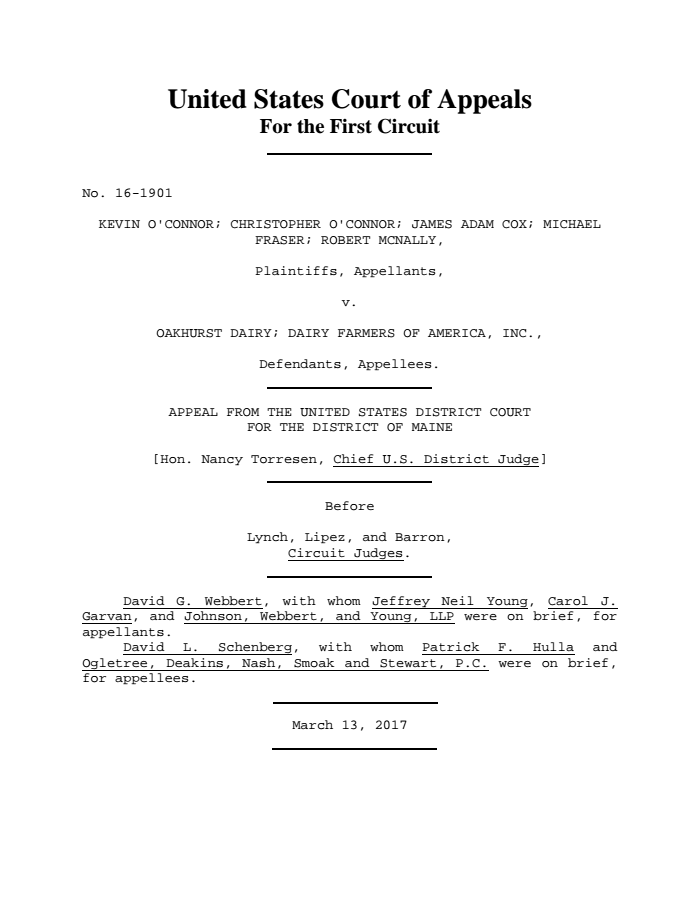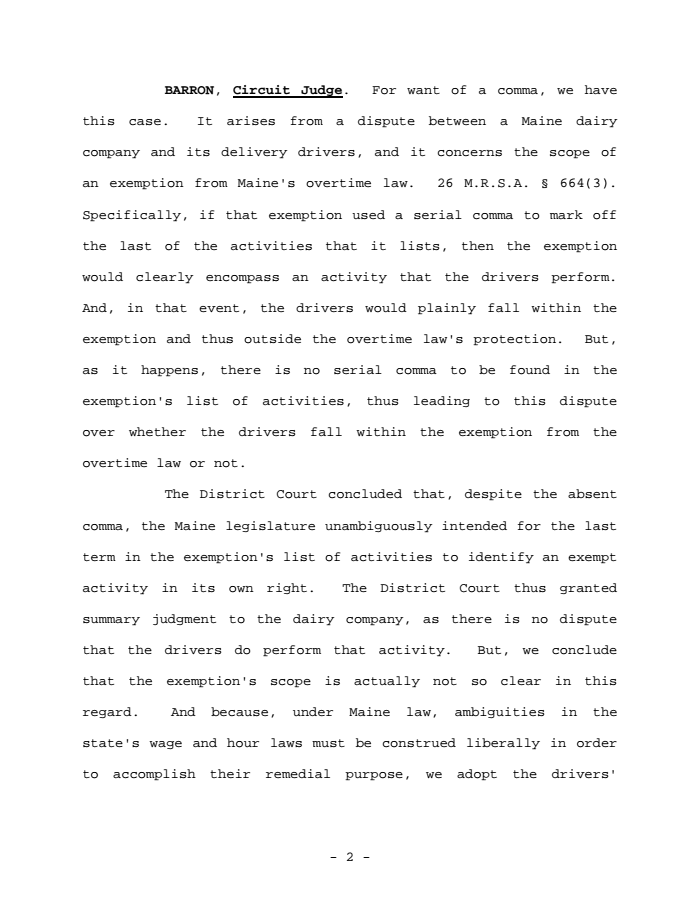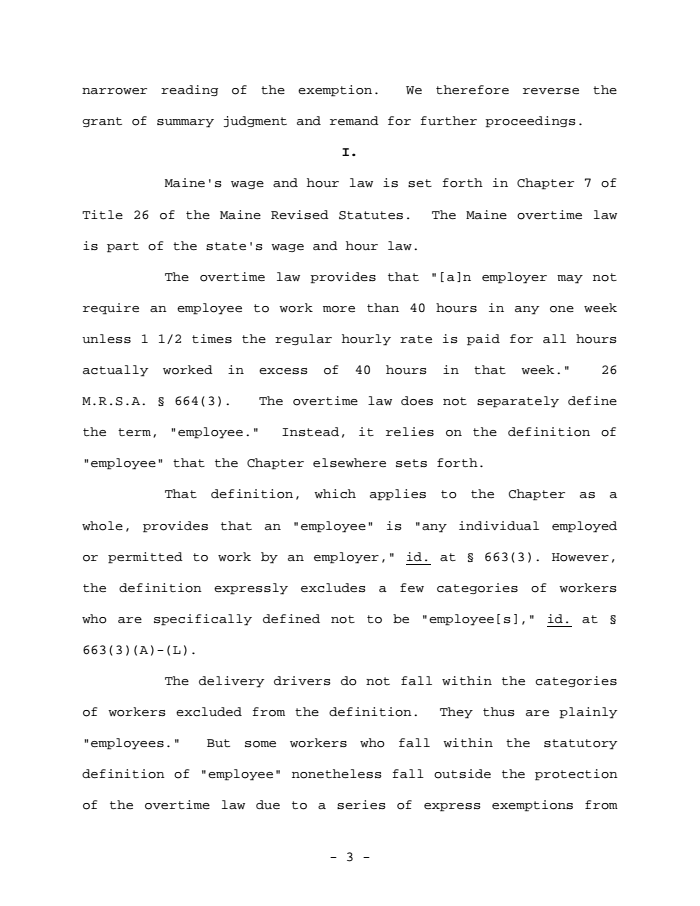
March 17 (UPI) — Drivers for a Maine dairy won millions of dollars in overtime pay in a court case that hinged on the lack of a comma in a state law.
In a class-action lawsuit, drivers for Portland’s Oakhurst Dairy will gain up to $10 million in overtime back pay, a court decided in a 29-page ruling. The reason is because of a missing Oxford comma — the final comma used before a conjunction — in this case, the word “or” — when three or more nouns are strung together.
In this case, there was no Oxford comma used in a listing of conditions when overtime pay does not apply: “…marketing, storing, packing for shipment or distribution of” products.
Without the comma, the phrase could be taken to mean that overtime pay doesn’t apply for workers packing for the shipment or packing for the distribution of products. Lawyers representing the workers argued this is how the law is supposed to be interpreted. Had there been a comma before the word “or,” though, it would have more explicitly denied overtime for workers who pack for shipment and, separately, for workers who distribute products.
The delivery drivers distribute Oakhurst’s perishable foods but do not pack the boxes.
It took the 1st Circuit Court of Appeals to determine if a section of the overtime law, referred to as Exemption F, exempts packing for the shipping or distribution of the perishable foods. The appeals court sided with the drivers in the March 13 ruling, saying the absence of a comma produced enough uncertainty to rule in their favor.
The court ruling noted that no comma precedes the words “or distribution,” and that “the section of the law is ambiguous, even after we take account of the relevant interpretive aids and the law’s purpose and legislative history. For that reason, we conclude that, under Maine law, we must construe the exemption in the narrow manner that the driver’s favor, as doing so furthers the overtime law’s remedial purposes.”
The Oxford comma is often omitted from before the conjunction — usually the word “and” — in a series of nouns. Bill Webbert, the lawyer representing the drivers, said Wednesday he was only representing his clients in the case, and not all those supporting the Oxford comma.
Webbert said, “[Inclusion of] that comma would have sunk our ship,” the Boston Globe reported.








